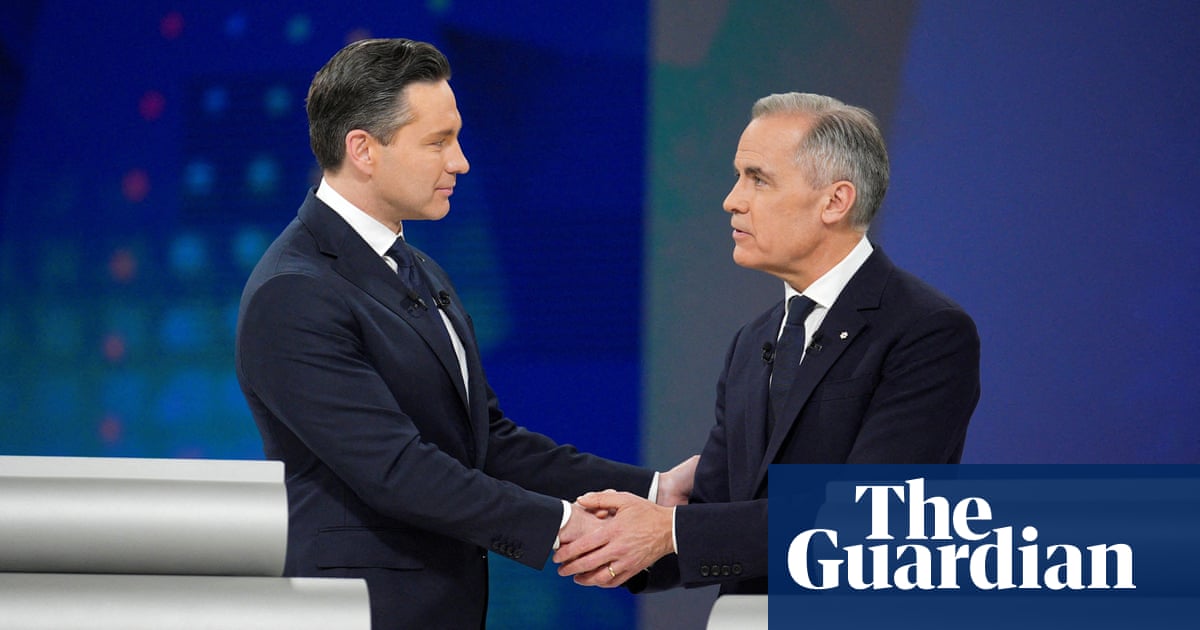The unfailing politeness of Canadians is a national character trait recognised the world over, but expats living in the UK, readying their postal ballots for next week’s momentous elections, are in no mood for niceties.
“If you mess with Canadians, we’ll hit back,” says Sarah Helppi, a 44-year-old Toronto native turned Londoner who has just posted her ballot for what she calls the most important Canadian vote in her lifetime.
For Helppi, hitting back against Donald Trump’s import tariffs and threats to annex what he has derisively called the “51st state” meant casting a postal vote inCanadafor the first time in the 12 years she has lived in the UK.
“I feel united with the Canadian people in trying to find their way out of this,” she says. “We want someone to make the hard decisions about how to re-engineer the economy away from the US, and to me that person is Carney.”
Carney is, of course,Mark Carney, the Liberal party prime minister and former governor of the Bank of Canada and Bank of England who, despite being just two months into his political career, is leading the polls.
Five parties were represented in parliament before the election was called, but as far as most voters are concerned, Carney and his rightwing rival, the Conservative leader Pierre Poilievre, are the only two candidates still in the race.
“I think it’s quite clear that it’s going to be between Carney and Poilievre this time around,” says Nathalie Cook, a 29-year-old primary school teacher from Ottawa living in London. “It definitely feels like the most important election I’ve ever voted in.”
Cook typically votes for the more left-leaning New Democratic party (NDP), but has this time voted tactically for the Liberals because she “saw the threats of Poilievre as too great”.
“It was a difficult decision,” she says. “My values are more deeply aligned with NDP, but this election isn’t just about ideals. It’s about preventing real harm.”
The harm as she sees it is the “attack dog” populism espoused by Poilievre, whose party had a 25-point lead in the polls over the Liberals until February, when Trump’s attacks on Canadian industry and sovereignty threw them into uncertainty.
Even Poilievre-loyalists are changing their minds. Richard Beard, a 30-year-old energy sector worker from Ottawa, where Carney is on the ballot, says a number of his Conservative friends will be backing the Liberals on Monday.
“Ideologically, I’m more aligned with Poilievre – there’s no doubt about that,” he says. “But to me, it was less an election about ideology and more about who we want in the seat to respond to Trump and manage the coming years and the risks that will arise.”
A record 7.3 million early voters have already cast their ballots in Monday’s election – an estimated 25% increase on the 5.8m advanced ballots cast in 2021.
It’s no surprise to Stephen Bateman, 28, a consultant who worked as an adviser to the Liberal party MP and former deputy prime minister Chrystia Freeland before moving to the UK three years ago. “The key point of this election is Canadian identity,” he says. “The one thing that I’ve found really interesting this time is the resurgence of a sort of polite nationalism.”
It may be polite, but it’s effective: airline travel between Canada and the US has plummeted, withone study finding a 70% drop in bookingsthrough to October 2025. “When people feel attacked, there’s this kind of rally-around-the-flag effect,” says account director TroyAharonian who, like all of the those the Guardian spoke to, said he wouldn’t currently consider travelling to the US.
“There’s a feeling that Canada’s worth defending, and Canada is worth something, and we’re not just gonna roll over.”
